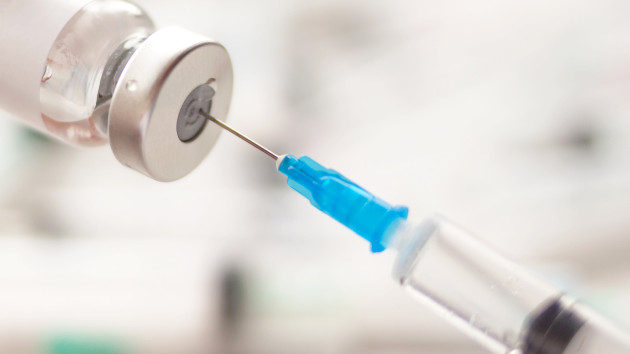Breaking the taboo of menopause: 10 commonly asked questions answered
Written by ABC Audio ALL RIGHTS RESERVED on August 15, 2024

(NEW YORK) — Actress Halle Berry is among the new wave of women in their 40s, 50s, 60s and beyond speaking out about menopause to take the conversation out of the shadows and into the spotlight.
In May, Berry, a 58-year-old mom of two, stood outside the U.S. Capitol and yelled, “I’m in menopause.”
On Thursday, Berry joined nearly two dozen other women in a conversation about menopause live on ABC News’ Good Morning America.
Menopause — the end of a woman’s reproductive years — is a natural process that impacts millions of women each year.
Yet for years, the topic has been considered taboo to talk about publicly and has been chronically underfunded when it comes to research.
Here are the answers to 10 commonly asked questions about menopause:
1. What is menopause?
Menopause is the point in a woman’s life when she has not had any menstruation, including no bleeding or spotting, for 12 months, according to the U.S. Office on Women’s Health.
It occurs when the ovaries naturally stop producing estrogen and progesterone, which causes a woman’s menstrual cycles to end permanently.
2. What age does menopause start in most women?
The average age for menopause, when your periods stop permanently, is 52, according to the Office on Women’s Health.
A woman may experience menopause earlier if they have never been pregnant, if they smoke or if they have certain health conditions, including some autoimmune diseases.
Only about 1% of women in the U.S. go through premature menopause, or menopause that happens before the age of 40. About 5% of women naturally go through early menopause between ages 40 and 45, data shows.
3. What are the symptoms of menopause?
Menopause brings with it many symptoms, the type and severity of which can vary from person to person.
Symptoms of menopause may include hot flashes, mood changes, depression and anxiety, difficulties sleeping, urinary incontinence, irregular periods or bleeding, vaginal dryness and infections, and changes in libido, according to the Office on Women’s Health.
4. How long does menopause last?
For most women, the period of menopause lasts four years, according to the Office on Women’s Health.
5. Do menopause symptoms continue post-menopause?
Yes, after menopause, women may continue to experience symptoms including vaginal dryness, hot flashes and low hormone levels, according to the Office on Women’s Health.
6. What is perimenopause?
Perimenopause, the period of time before menopause when ovaries make varying amounts of the hormones estrogen and progesterone can start as early as 40 years old and can last up to 10 or more years.
7. What are the symptoms of perimenopause?
Symptoms of perimenopause include everything from changes in mood to increased anxiety and depression, changes in sleep, brain fogginess, and changes in frequency and severity of headaches.
Additional physical changes may include changes in hair patterns, breast tenderness, midsection weight gain, vaginal dryness, changes in bleeding patterns and changes in libido.
8. Does pregnancy still happen during perimenopause?
Yes, women can still get pregnant during perimenopause as the body may still ovulate.
9. Is it possible to find relief from menopause symptoms?
Yes, there are ways to treat symptoms of menopause so women are advised to have open and honest conversations with their doctor to get relief.
For some symptoms, your doctor or health care provider can work with you to find medications that help provide relief, including hormonal and non-hormonal medicines and over-the-counter products.
Menopausal hormone therapy, also called hormone replacement therapy and hormone therapy, may be an option if your symptoms are severe enough to interrupt your day-to-day life, according to the Office on Women’s Health.
Menopausal hormone therapy can be taken as a pill, as a skin patch, or, in some cases, as a cream.
The Office on Women’s Health recommends using the lowest dose of menopausal hormone therapy for the shortest time needed.
10. Is research underway to offer more support for menopause?
Menopause and other women-only health conditions have traditionally lagged behind in research and understanding. As recently as the 1970s, few women were enrolled in clinical trials, and women’s health needs were believed to be a low priority. One 2022 study found women still only account for 29% to 34% of some early-stage clinical trials due to concerns about fertility.
In March, President Joe Biden signed an executive order on women’s health research, which particularly focuses on increasing research on women’s midlife health and improving management of menopause-related issues.
Under a legislative proposal introduced in the U.S. Congress in May by Democratic Sen. Patty Murray of Washington and Republican Sen. Lisa Murkowski of Alaska, $125 million of federal funding would be set aside for clinical trials, public health, and medical research on menopause.
The bill is backed by 17 senators — three Republicans, 13 Democrats and one independent, all of them women.
Copyright © 2024, ABC Audio. All rights reserved.
 KVSP
KVSP 




